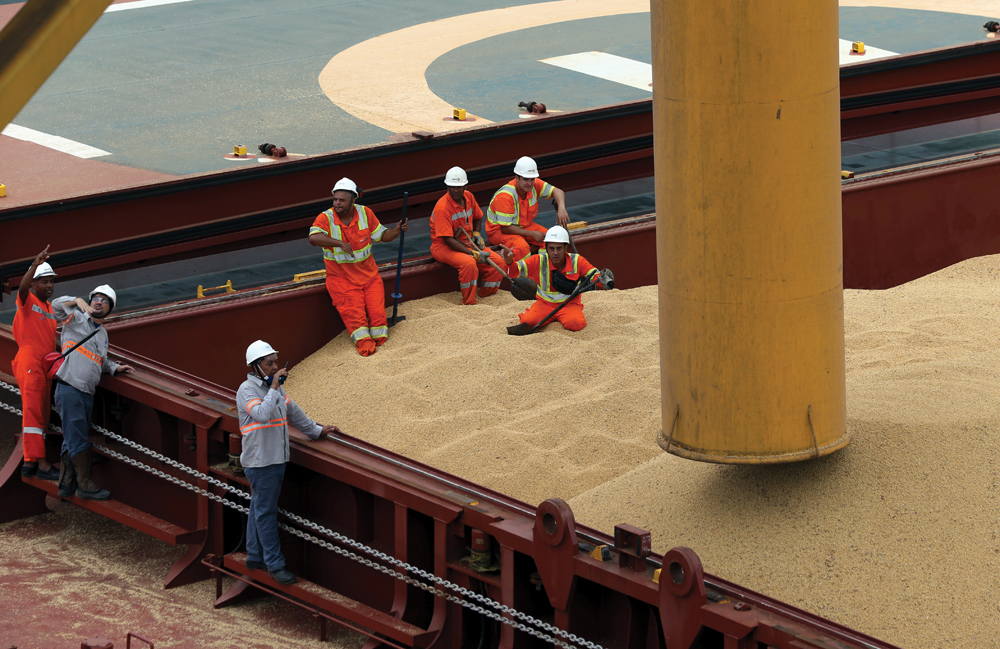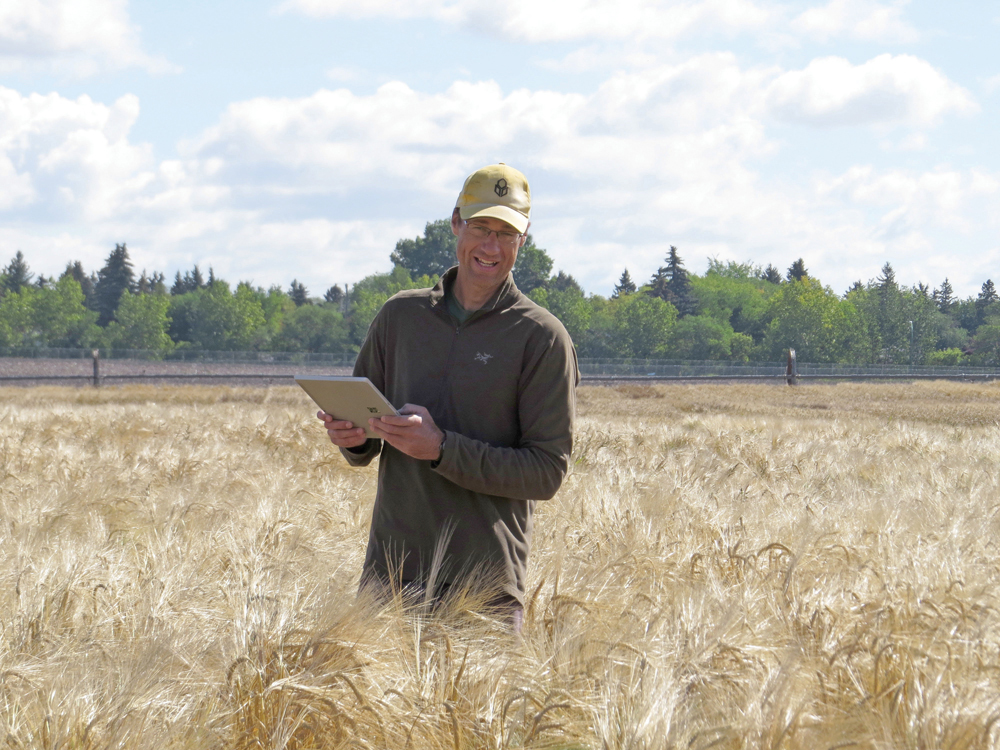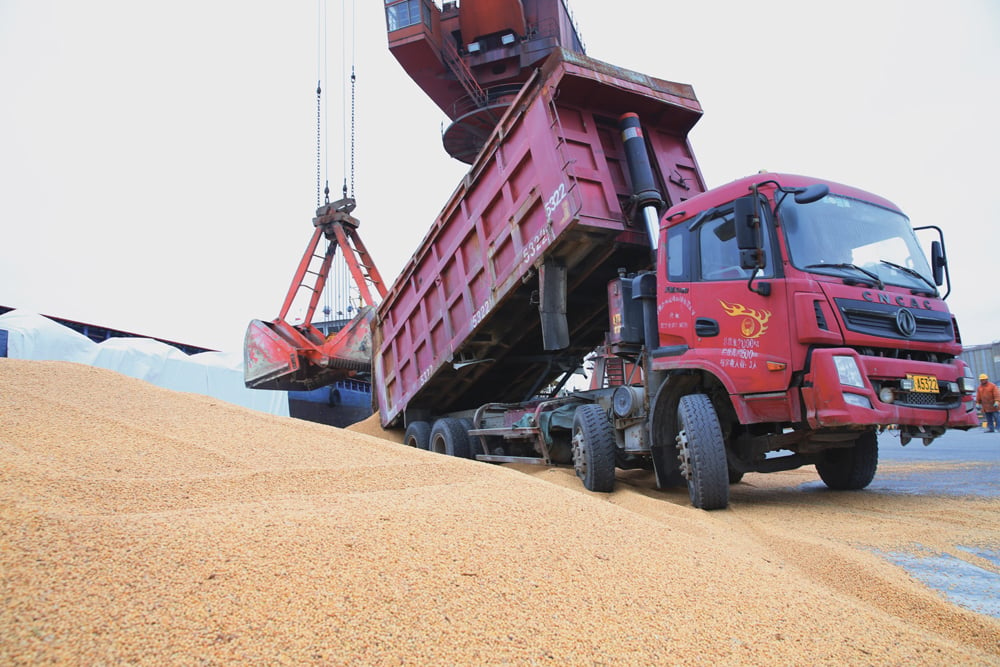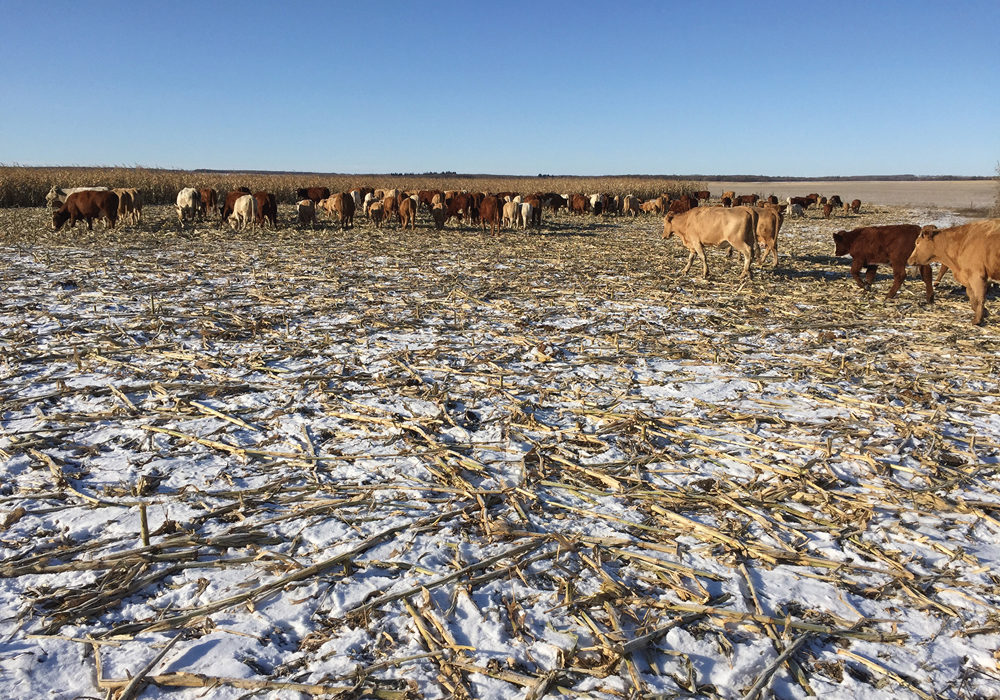Support to retain deferred cash purchase tickets for western grain farmers is building.
Keystone Agricultural Producers (KAP) passed a resolution to that end at its advisory council meeting here April 20 to keep the option.

The Western Grain Elevators Association (WGEA), which represents Canada’s six major grain elevator companies, also wants to keep deferred cash purchase tickets.
“It’s not avoiding taxes (by being able to defer grain sale payments into the next tax year),” said Foxwarren farmer George Graham, who moved the resolution.
“It’s just a way to balance out taxes.”
- Read more: Keystone Agricultural Producers defends cash ticket deferrals
- Read more: Tax treatment of deferred grain cash tickets under review
The federal government announced in its budget March 22 it was consulting the public about ending deferred cash purchase tickets.
Read Also

Canada’s interprovincial trade push makes for strange allies
Breaking down interprovincial trade barriers has become a national group project among Canada’s provincial governments, and that’s made for some strange alliances
The “historical rationale” for them “relates to international grain shipment agreements and the Canadian Wheat Board’s (CWB) former position as the sole purchaser of listed grain in Manitoba, Saskatchewan and Alberta,” the federal government said. The option only applies to the following crops — wheat, oats, barley, rye, flax, canola, and rapeseed — sold by Prairie grain farmers.
The government said deferred payments on the sale of produce is not generally available to other taxpayers.
With the CWB and its single desk eliminated, the government said, delivery of listed grains “is now the responsibility of private business rather than the federal government.”
“(T)here is arguably no longer a clear policy rationale for maintaining the tax deferral accorded to deferred cash purchase tickets received as payment for listed grains.”
The deadline to make submissions to [email protected], is May 24.
“We all know how tough marketing is and… if you’re going to start timing grain sales because of when you need the income, it’s just going to cause problems,” Starbuck farmer Reg Dyck said while debating the resolution.
Deferred cash purchase tickets help farmers and grain companies, WGEA executive director Wade Sobkowich, said April 11 on the sidelines of the Canadian Global Crops Symposium in Calgary.
“We’ll be required to pay farmers (who can’t defer payment) sooner than we do today, all things being equal, and therefore the cost of financing will go up (for grain buyers),” Sobkowich said.
“Farmers who defer delivery until the next tax year means we are altering delivery patterns and we may not be taking advantage of peak price periods. Grain companies will have less control as to when they call the grain forward and that can impact their ability to extract revenue from the marketplace. So it can complicate delivery patterns and it can increase the cost of financing to grain companies and all of those costs get shared by the industry.”
Given ups and downs in grain production and grain prices, farmers need tools to even out their income, he added.
“Farmers’ income is very susceptible to factors outside their control,” Sobkowich said. “This is a tool that allows them to even their income one year to another, rather than have up-and-down spikes in income, which isn’t great for them. It’s easier to plan your life when you know what sort of income to expect. But farmers don’t have that luxury and the deferred cash payment is one way for them to even out the peaks and valleys of their income. It’s a tool we think is very valuable for them to use.”
The Alberta Wheat Commission (AWC) and Grain Growers of Canada (GGC) also want to keep deferred tickets as an option.

“The government won’t make any more money than it does now (in the absence of deferred payments),” AWC chair Kevin Auch said in an interview in Calgary. “We’ll still pay about the same amount of tax as what we do now because after you average things out it will probably work out the same. But it will tend to make us delay sales that should be made into a marketplace when the demand tells us to make those sales.”
In fact, farmers might pay less tax if they have to defer sales because the strategy could result in lower grain prices and less income, he added.
Fewer grain delivery and pricing options can hurt grain companies too when it comes to making timely and profitable sales to international grain buyers, Auch said.
The Grain Growers of Canada supports maintaining the current cash ticket deferral option, association president Jeff Nielsen said in an email April 12.
“It is used by grain farmers to manage cash flow and balance their income from one year to the next,” he wrote.
“Grain farmers in Canada operate in a highly cyclical industry. In addition to price fluctuations they must also manage weather impacts and inconsistencies in grain transportation. The cash ticket deferral is a valuable tool that helps farmers manage all these risks.”
Both Sobkowich and Auch said they are optimistic the government can be convinced to keep deferred cash purchase tickets.
“I am assuming the government is reasonable,” Auch said. They are asking for consultations. They will find out how it works.”
If the government wasn’t prepared to keep the option it would’ve made the change without consulting, Sobkowich said.
“We are optimistic that once we provide our comments and others in the industry provide their comments the government will see that it is a valuable tool,” he said.




















